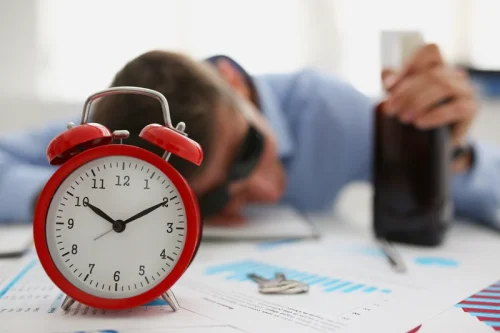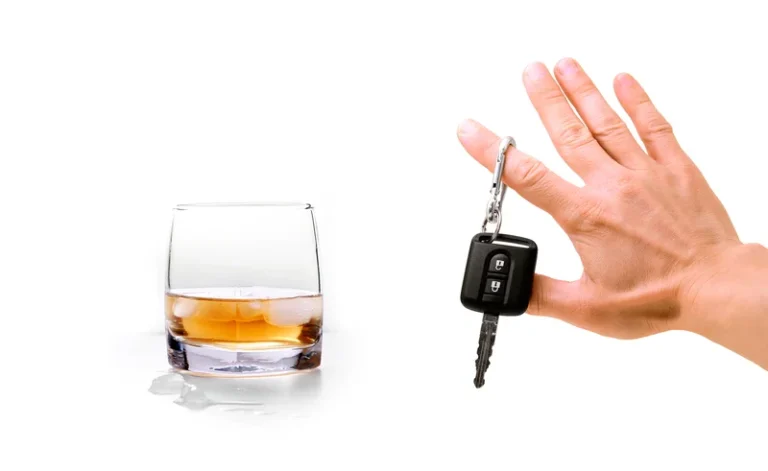How Does Alcohol Impact Sleep?

Researchers also found that when drinking moderate or high amounts of alcohol, rapid eye movement, or REM, sleep decreases and the amount of initial, lighter stages of sleep, non-REM, increases. For context, REM sleep is characterised as the most restorative stage of sleep and is essential for cognitive functions. A person may cycle through REM sleep (and all of the stages of sleep) between four and six times throughout the duration of sleep. Although consuming alcohol before bedtime helps you fall asleep faster, the popular beverage negatively affects overall sleep quality.
Piedmont Healthcare

It also covers what symptoms you might have if you don’t wait long enough between having your last drink and going to bed. If you want to be really careful, Dr. Willeumier recommends giving yourself a six-hour window before bed. “Given that alcohol is a central nervous system depressant and has a half-life of anywhere from six hours or https://ecosoberhouse.com/article/warning-signs-of-drug-use-and-addiction/ longer depending on the type of alcohol and volume consumed, you want to drink it at least six hours prior to bed if you do not want it to interfere with your sleep cycles,” she says. Putting a few hours between drinking and going to sleep will allow the alcohol to work its way through your system, according to Dr. Oyegbile-Chidi. This means there’s less of a chance of waking up in the middle of the night because your body is metabolizing that martini. “Alcohol should not be consumed on a regular basis if your intention is to live a brain-healthy lifestyle,” says Dr. Willeumier.

Alcohol and Sleep Apnea

While an occasional drink might not have severe consequences for everyone, regular consumption can lead to disrupted sleep patterns. If you do choose to drink, do so moderately and not close to bedtime so your body has time to metabolize the alcohol before you go to sleep. Alcohol can impact sleep-wake cycles, making it harder to stick to a regular sleep schedule. Over time, this can contribute to chronic sleep deprivation, affecting your mood, energy levels, and overall health. While drinking alcohol before bedtime may help you feel relaxed and sleepy, enjoying a nightcap puts you at risk of experiencing repeated wakings and low-quality sleep later in the night. “Providing times for when to stop drinking alcohol, start winding down for bed, and my optimal wake-up and go-to-bed times have been so helpful…I think it’s helping me set a course to be more in control of my sleep and energy throughout the day.” Read the review.
How alcohol affects sleep quality—and your overall health
Initially, alcohol might make you feel relaxed and sleepy due to its sedative effects, but as the night progresses, the alcohol can have negative impacts. Once alcohol is in your system, it starts to affect the brain and body in ways that can interfere with good sleep. Although you might fall asleep quickly, the second part of your sleep cycle is often disrupted and you may find yourself waking frequently throughout the night, which interrupts your natural sleep pattern. People who consistently drink too much alcohol may eventually build up a tolerance to its initial sedative effects. Studies of chronic alcohol users have found that these individuals typically experience disrupted sleep patterns with less slow wave sleep and more REM sleep.
- If you do choose to drink, do so moderately and not close to bedtime so your body has time to metabolize the alcohol before you go to sleep.
- Not getting enough REM sleep can make concentrating difficult, cause forgetfulness and leave people feeling excessively sleepy during the day.
- However, if you continue to have sleeping difficulties, reach out to a sleep specialist.
- First off, while wine and other alcohols have notorious sedative effects, it’s important to note that these drinks also have calories, which means they give us energy, too.
- Be patient with yourself and recognize that each day is a new opportunity to reduce your alcohol intake and improve your sleep.
Problems associated with drinking before bed
You might want to give a no-alcohol policy a go (and utilize options like alcohol-free wine) if you’re struggling with sleep. “Given that sleep architecture and efficiency does alcohol help you sleep decline with age5, it is important to keep in mind that alcohol will further exacerbate these issues.” Develop a bedtime routine that signals to your body it’s time to wind down.
Alcohol and Insomnia: That Nightcap Might Keep You Up at Night
But despite this, even when researchers accounted for factors including age, gender, weight, mental health, and schedules, in a head-to-head alcohol vs. caffeine test, alcohol was still the bigger sleep disruptor. A newer study found that one dose of alcohol had no effect on the circadian rhythm in rodents. However, the researchers proposed that perhaps these effects on the circadian rhythm are only seen after several consecutive days of alcohol consumption. In support of the alcohol-melatonin connection, researchers have noticed that individuals suffering from severe alcohol withdrawal tend to have less pronounced melatonin levels and release.
- However, the extent to which sleep hygiene principles and strategies apply outside of clinical settings is not well known.
- Remember, improved sleep can lead to better mental clarity, mood, and overall health.
- Much of this work has been conducted in the context of the intensive care unit (ICU) to improve patients’ sleep.
- That’s because as alcohol starts to metabolize, the sedative effect wears off.
Circadian Rhythm Fasting
Discover enjoyable non-alcoholic beverages you can drink in situations where you might typically consume alcohol. Dr. Seema Khosla is the medical director of the North Dakota Center for Sleep and a medical advisor for MedBridge Healthcare. She is also a fellow of the College of Chest Physicians, as well as the American Academy of Sleep Medicine (AASM). Dr. Khosla runs a telemedicine outreach program that serves rural areas in North Dakota and has done so for the past decade. She is active within AASM and has served on numerous AASM committees, including the original Telemedicine Task Force. She also served as the inaugural chair of the Clinical and Consumer Sleep Technology Committee and is the current chair of the AASM Public Awareness Advisory Committee.
Finally, additional research should consider the role of caffeine tolerance and its implications for sleep. For low to moderate habitual users, the daily deviation from normal caffeine intake may be more relevant to sleep than absolute amounts. Thus, behavioral recommendations may be personalized based on an individual’s habits, rather than a generalized rule. Advancements in the study of caffeine and sleep will help identify the strength of their association in regular users, and inform the establishment of practical behavioral recommendations.

But even a regular, moderate routine of two to three drinks a day is enough to create sleep and performance problems for many people. For many people who drink moderately, falling asleep more quickly may seem like an advantage of a nightly glass of wine. For people who snore or who have sleep apnea—a disorder that causes repeated pauses in breathing during sleep—drinking alcohol tends to aggravate symptoms. If you are one of the nearly two thirds of Americans who drink alcohol, chances are, you’ve had a drink in the hours before bedtime.

 We use cookies to optimize our website and our service.
We use cookies to optimize our website and our service. 
